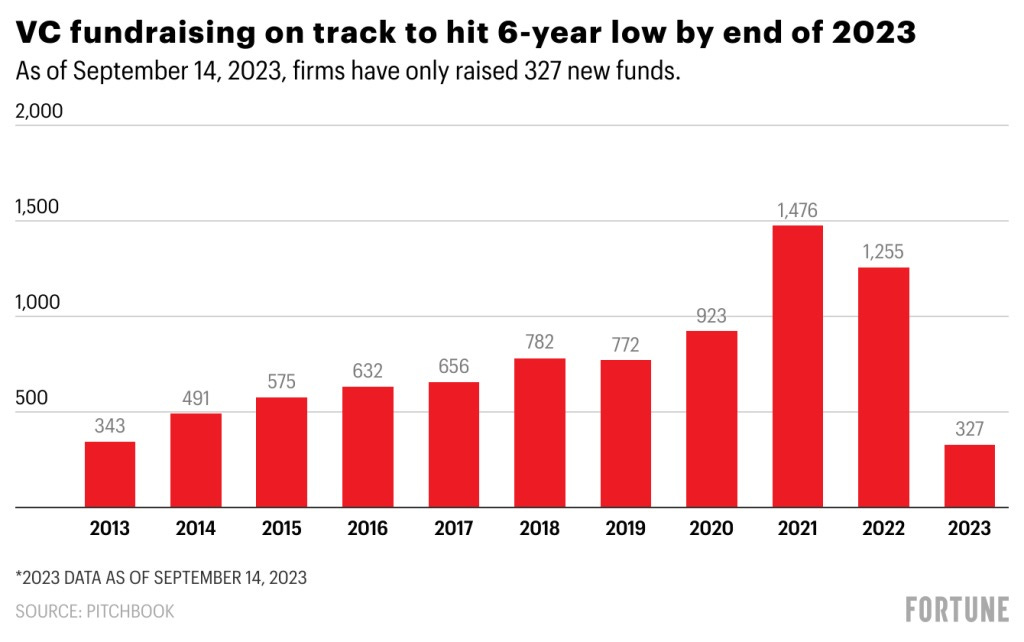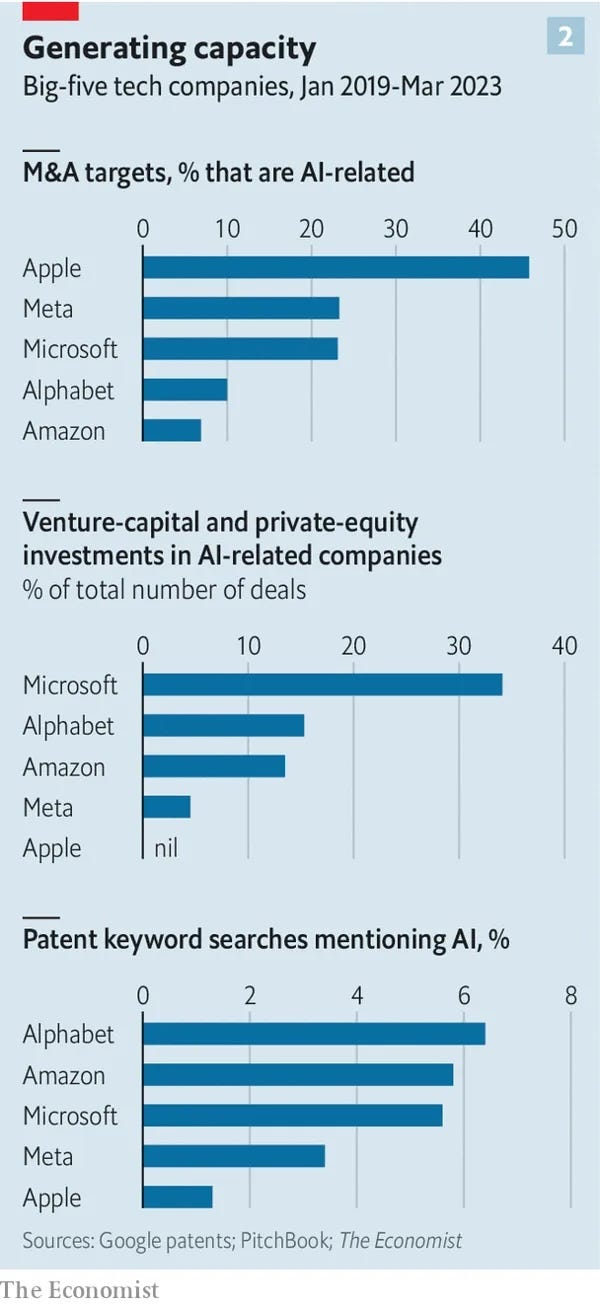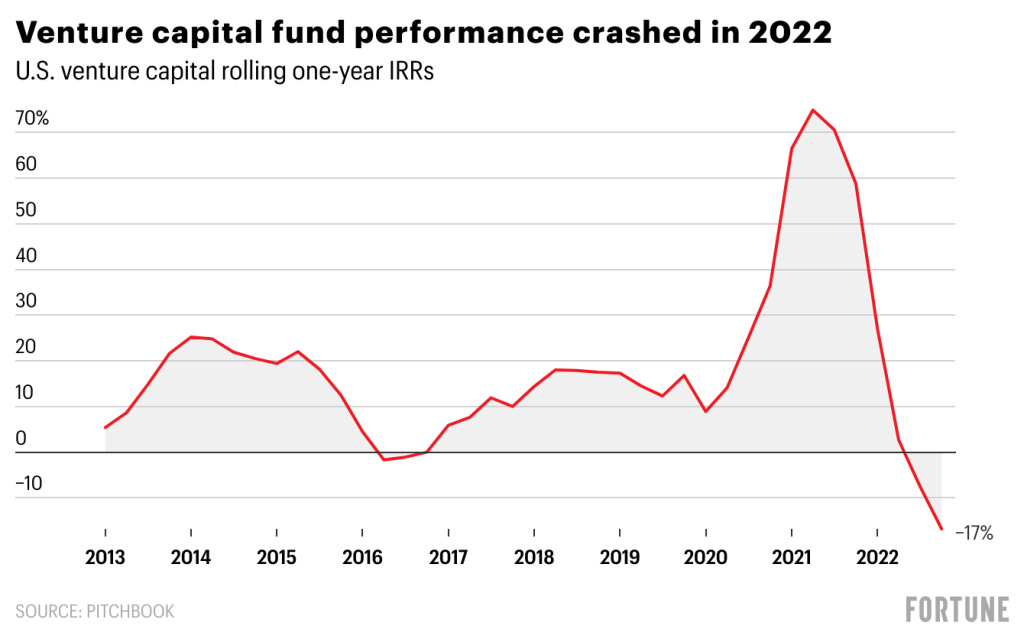What’s coming next for AI in 2024
A long overdue VC apocalypse and the birth of the first real AI companies
2023 was the first full year for the world to react—and overreact—to ChatGPT. I’ve said it before but ChatGPT was not itself a big milestone in AI, outside of helping awareness of what was happening in the field explode onto the general public.
That being said, there is an impact in capturing popular imagination. We saw a ridiculous number of AI startups get founded (most of which, I think are doomed), a massive amount of VC funding slosh into AI (most of which I think is lost), and organizations start to get serious about adopting AI.
The last one of these impacts is going to be a major driver of what I expect to see in 2024—specifically, AI adoption everywhere in the boring corporate stack, from data queries, to generating charts/graphs, to making inane reports, and into every random SaaS product used within bureaucracies small and large.
This particularly advantages companies that have mastered selling bundled sets of boring software to large customers. Companies, like, say, Microsoft.
The big will keep getting bigger
I covered pretty extensively why the winners of AI will be the winners of large-scale web computing—basically, the challenges of scale and distributed computing are not just similar but are literally identical between the two domains.
This means that Microsoft, Meta, Alphabet, and the like who were the winners of the last big tech boom are poised to be some of the biggest winners of this one. That’s saying something because they’re already huge.
VC has been betting heavily on AI, but so have the big tech companies. Unlike a lot of VC firms, it’s actually quite reasonable given the market dynamics at play in the industry.
If someone was hoping that a big AI company was going to emerge out of left field and pose a meaningful threat to the existing big tech companies, I think that hope is likely in vain. After all, all of the “big AI companies” are either already or are moving to be owned by, or “aligned with” (pseudo-owned) by the big companies.

I would say my prediction is this trend will accelerate even more as reckless VC dollars start to recede, given higher interest rates and lack of exits, and these AI companies still have to pay their compute bills.
VCs will face a reckoning
I have to say that although I didn’t end up publishing much about it, I did privately tell folks that 2023 would see a VC reckoning. After all, it happened to some degree already in 2022.
As a whole, we’re still getting numbers, but VC mostly muddled through 2023. A lot of this was supported by two major factors:
1. Institutions (pensions, endowments, etc.) continued to invest in VC funds, even though interest rates had gone up and other assets could fulfill their return needs
2. VCs reinvested heavily into their own companies, supporting their prices

Anecdotally, I had heard a few limited partners of major, household name funds mention that they saw somewhere between 30-50% overlap of companies between multiple vintages. This, for those who are unfamiliar with the industry, is not quite how it’s supposed to be. Basically, this means, fund after fund, the VCs kept pouring money into the same companies, supporting them with cash and potentially propping up their prices.
2024 is not going to be the same. We still haven’t seen a massive number of exits, and while public markets have gone up and down, they haven’t exactly gone gangbusters since the Fed started ratcheting up interest rates in 2022.
Of course, that is true unless you’ve been holding essentially tech companies. A whopping 75% of the S&P 500’s total gains in 2023 came from those “Magnificent Seven” tech companies.
In any case, there’s a bit of death spiral coming up. As funding dries up, a lot of VCs can’t prop up their traditional SaaS/marketplace companies. Prices go down, and funding from institutions, seeing blood, will dry up even more.
2023 was a muddle-through, but I think it’s a lot to ask to see these big VC funds who don’t understand anything outside of the SaaS models they’ve been invested in for the past decade to suddenly be able to work well in a new, hard/deep tech world.
We’re going to see the first real AI companies
I keep saying a lot of the current generation of AI companies are destined to be either the R&D arm of the big tech companies, or just die.
That makes me sound like I think AI is just a big bubble. That couldn’t be further from the truth.
I think AI is poised to change the world, and in five or ten years, will touch every aspect of our lives. Not in terms of these voice assistants or things that write high school essays for us, but in terms of AI that can help manage our power networks, design our future computer chips, help us synthesize new drugs, and even help create new materials that will go into every new smartphone-like device (whether it be AR/VR glasses or something else) we own.
For those things to happen, we need companies that harness proprietary data (usually in expensive, painful places to operate—like the real world in drug interactions/pharmacokinetics or electronics design), and create a feedback loop to keep improving their AI. This will be expensive, and will not pay off immediately or incrementally like SaaS, but has enormous rewards for the companies who can follow through with the capital and execution to bring it to fruition. This stuff looks a lot like the original semiconductor boom in the 1980s.
I’ve had a great deal of pessimism about what we’ve seen so far, but I do think that AI has now permeated the popular consciousness enough (thanks OpenAI and ChatGPT) to allow for funding, real-world adoption, and just the imagination of future founders to take hold. This year, we’ll likely see a few giants of the next decade start to emerge.
However, don’t expect them to be big yet. This is likely just the year they emerge, and a lot of the general public won’t hear about them until 3-5 years from now.
Lots of exciting things in the future
I’ve become known as kind of a (or the) cynical VC operating in the space. However, I’m still pretty excited about the future. I wouldn’t be in this industry in general otherwise.
It’s always interesting to think about what it’s like to be in one of those technologically revolutionary periods. Like the turn of the century and the Industrial Revolution, going from pre-modern to steampunk modern in the course of a decade or two. Or the 1990s (which I actually saw), in terms of an analog world of landlines and a few channels, to the explosion of the internet.
For better or worse, we live in interesting times, and are likely headed into another revolutionary period. Buckle up, and happy 2024.








